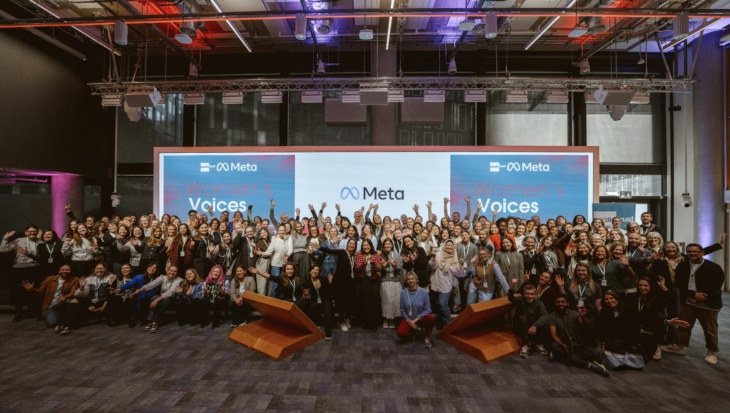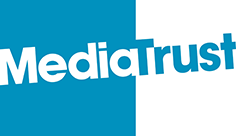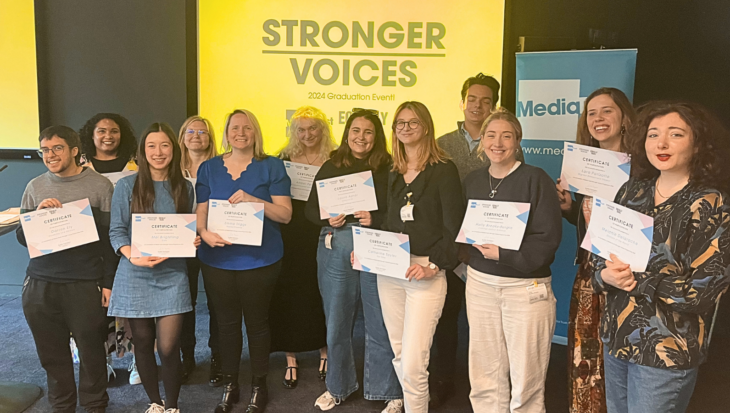Hello from Media Trust.
Amid all the uncertainty with the outlook ahead, one thing is crystal clear: the COVID-19 recovery will be digital.
By now, most charities have digitised at least some part of their operations to serve beneficiaries and protect employees in the face of social distancing measures as a result of the COVID-19 crisis. According to Mckinsey, we have vaulted five years forward in consumer and business digital adoption in just eight weeks. In other sectors, schools have pivoted to 100% online learning and doctors have begun delivering telemedicine. The list goes on.
Even after lockdown eases, the rapid migration to digital driven by the pandemic needs to continue. For one thing, it’s possible the virus may return and social distancing measures may need to be reinstated from time to time, but the crisis has also changed societal behaviours with 75% of people using digital channels for the first time saying they will continue to use them when things return to “normal.”
However, when it comes to the charity sector, the crisis has laid bare the digital divide. As Stephen Bubb, Director of Charity Futures, wrote in The Times last week: “The crisis has highlighted how many charities live hand-to-mouth, stinting on essential infrastructure and leadership. Many have been looking at different ways of working, and how to utilise new technology. But the reality is that donors often want all of their money to go directly to the front line. The neglect of IT systems, let alone the failure to train staff and managers better, ultimately damages the cause and hampers results.”
At Media Trust, we’ve seen first-hand from our digital skills training programmes for charities how the majority of charities across the UK are struggling with basic digital skills. Our recent Charity Survey in partnership with CharityComms discovered that charities used to face to face delivery and communications are finding it challenging to move their services online and to use technology and new platforms to support their beneficiaries, stay in touch with staff, volunteers and other stakeholders as well as raise vital funds.
Read Charity Digital’s coverage of our Survey here.
Although Media Trust’s digital skills initiatives with technology partners like Google’s Digital Garage and funders like DCMS and the Marketing Trust over the last 18 months have helped hundreds of charities across the UK to enhance their digital comms capabilities – and there are obviously other essential programmes also helping to strengthen the digital capabilities of charities – there is still more to be done.
This was underscored by Baroness Diana Barran, the Minister for Civil Society and DCMS, in yesterday’s State of the Sector presentation which shared findings from New Philanthropy Capital’s recent report on The State of the Sector 2020: The Condition of Charities Before the COVID Crisis based on interviews with 300 charity leaders between November 2019 and January 2020. NPC found that 89% of charities see digital as important to achieving their mission but charities’ confidence in their ability to use digital technology has dropped from 70% to 59% since 2017. It seems that familiarity does not breed confidence when it comes to charities and digital. It may be that the more you know, the more you realise how much there is that you don’t know.
Media Trust’s latest digital skills programmes impact evaluation report also conducted by NPC and published today offers insights on how to do digital skills training for charities effectively including tailoring training to different interests, levels, abilities, roles and types of organisation and focusing content on where charities need the most support; recognising the low levels of confidence and motivation on the part of many charities to embrace change; providing practical demonstrations as well as resources and templates for the charities; combining classroom training with the opportunity for charities to get on the spot practical advice from industry experts; facilitating ongoing expert support for charities by Digital Mentors comprising industry volunteers and/or peer experts following the training.
At Media Trust, we’re busy galvanising media and creative industry support for charities and working alongside charity and other partners to provide media, digital and communications training, volunteers and resources for charities. Specifically:
First, we’re launching a series of free webinars delivered by our media industry partners to help charities with their digital and communications needs. Our first webinar delivered by Twitter is taking place this Wednesday and will provide charities with platform updates, audience insights and content best practices to enhance how they are using Twitter. The webinar was oversubscribed with more than 300 sign-ups in less than an hour! Coming up, our next webinar on reaching Gen-Z audiences will be delivered by Snap in early June. The resources from these sessions and more can be accessed by charities for free via Media Trust’s Online Resource Hub.
Secondly, we’re working in collaboration with other capacity building experts to deliver more joined up support for charities in response to COVID-19. For instance, we’re thrilled to be part of the Heritage Digital consortium, funded by the National Lottery Heritage Fund as part of the Digital Skills for Heritage initiative, and led by the Heritage Alliance with Charity Digital and Naomi Korn Associates that will be working with thousands of heritage organisations across the UK to strengthen their digital skills. Going forward, we think this kind of collaborative coordinated response will be increasingly important as funding for the sector shrinks.
Thirdly, with the help of a grant from the London Community Response Fund, Media Trust is upgrading our online Volunteer Platform where charities can post their needs for expert comms support and media and creative industry volunteers can find opportunities to give back that align with their interest, skills and availability. Over the last month, we have seen a 149% increase in media and creative volunteers signing up to the platform. Charities who have benefited include Ealing Mencap who found a volunteer who is helping them with their #LookICan campaign and developing digital resources for people with learning disabilities to use at home. We’re excited about how the platform upgrade will enable us to be more efficient and effective in matching charities and volunteers.
Media Trust has been lucky in the past to be able to secure funding for our tech infrastructure from progressive funders like Garfield Weston and the Fidelity Foundation. The sector desperately needs more funders like them and the London Community Response Fund. Javed Khan of Barnado’s speaking as part of yesterday’s State of the Sector presentation called for the Government to launch a new Charity Innovation Fund where any new innovations will be open source and accessible to the whole sector. But besides Government investment, going forward, trusts and foundations need to prioritise funding for technology and infrastructure, strengthening charities’ capabilities in often unchartered territory from collecting and analysing data for insights and impact evaluation to engaging users in the (re)design and development of services and continuously testing and adapting their use of new platforms and apps. Basically, we need more funders to encourage and work with their grantees to be bolder and more creative about embracing innovation.
The pandemic has given us a tantalising glimpse of the future where if we can better align technology with social impact, charities can do so much more good than they already are. It’s also given an urgency to making this a reality.
Su-Mei Thompson
CEO, Media Trust



